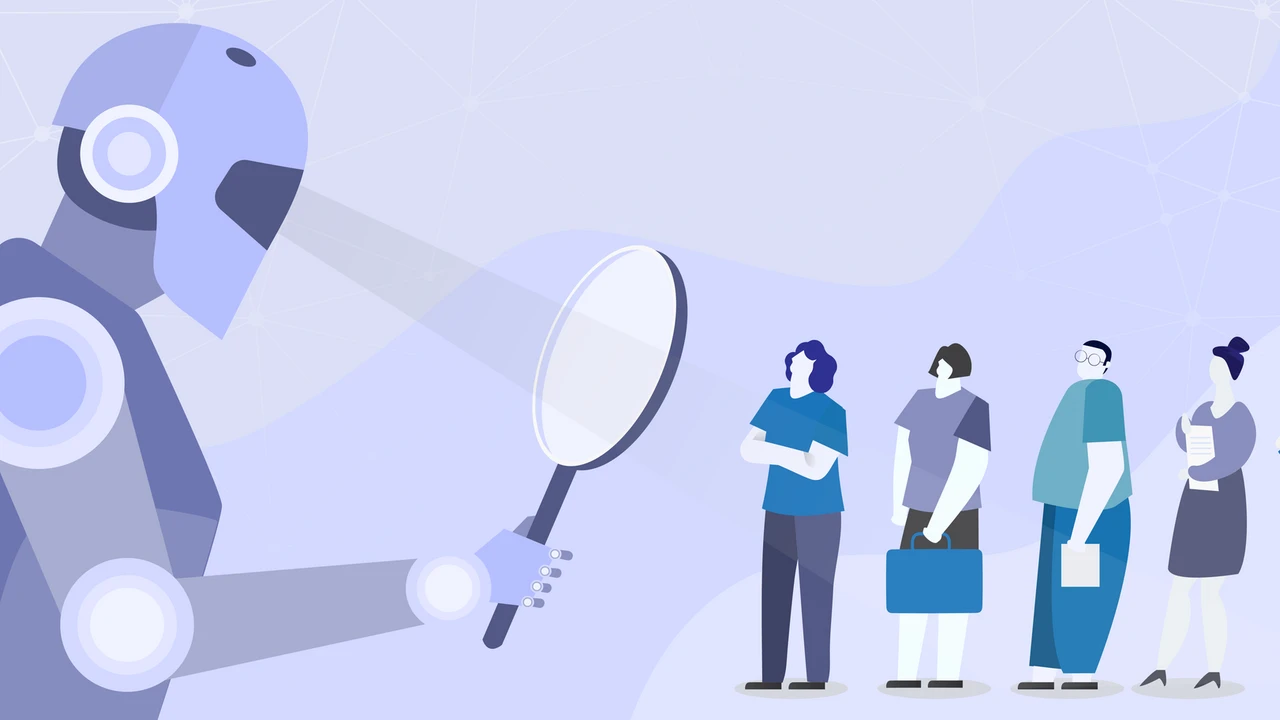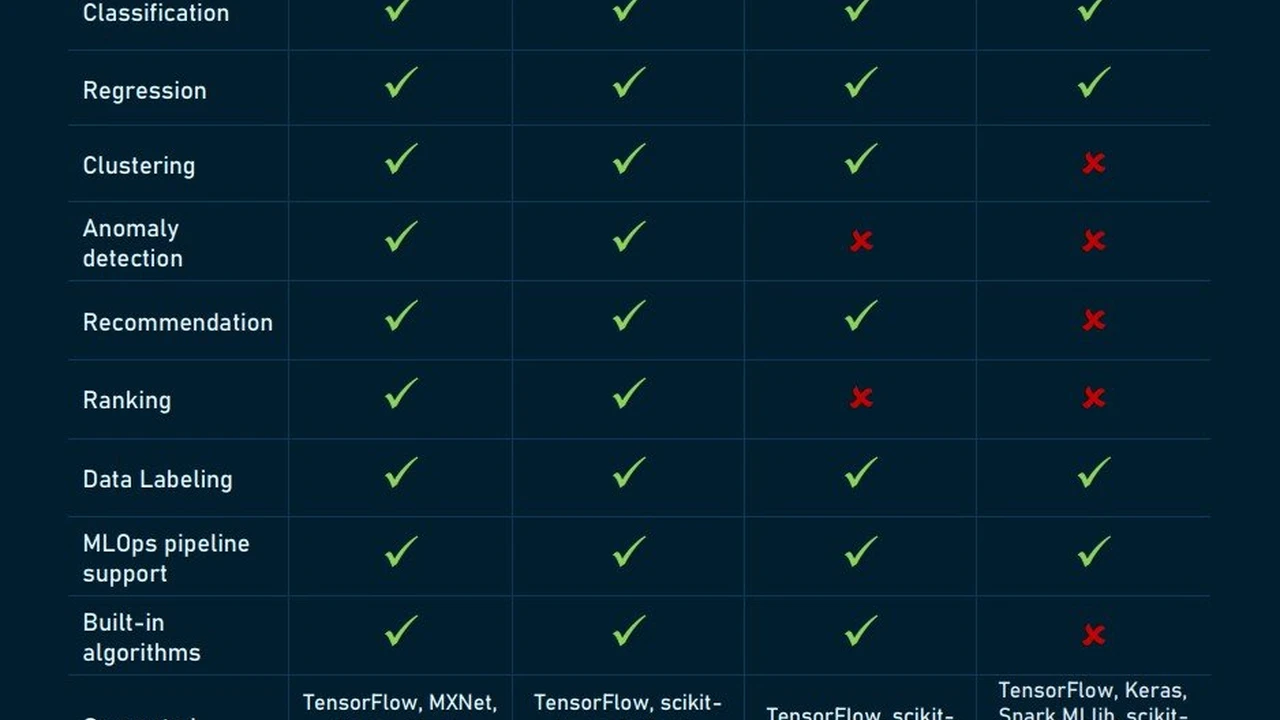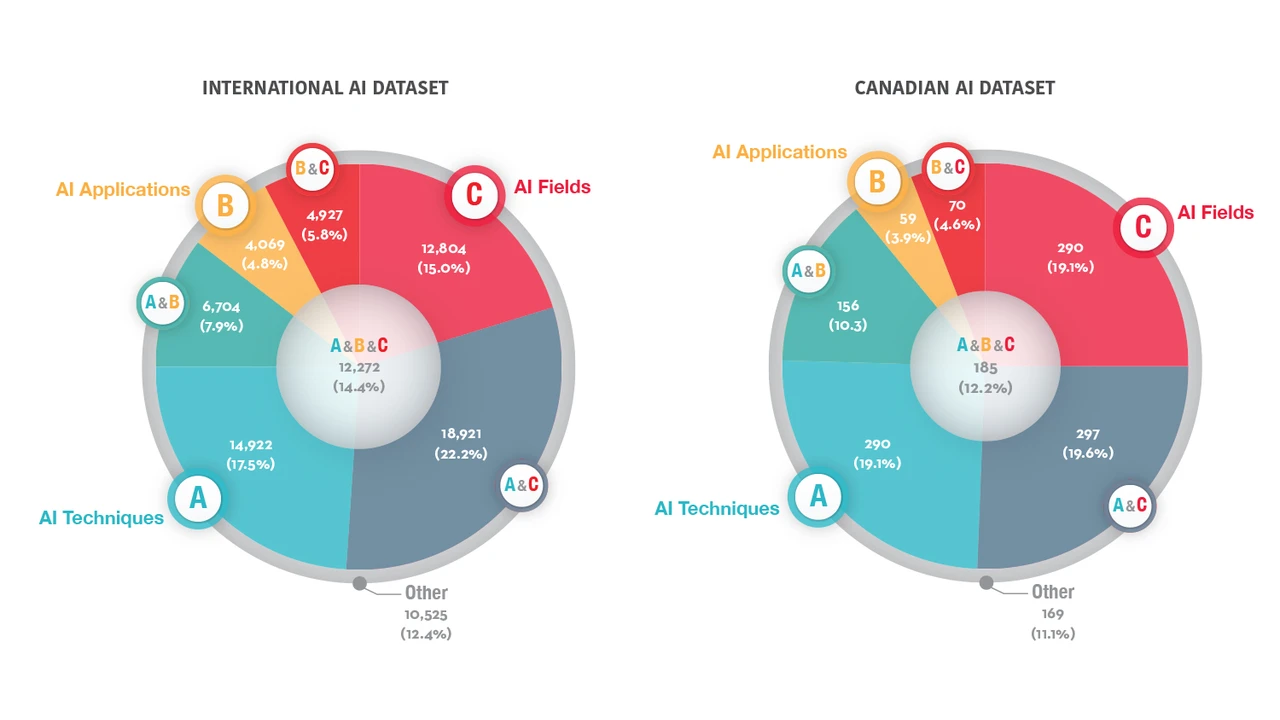AI Bias: Understanding and Mitigating Algorithmic Discrimination
<meta description="Discover the best AI events, conferences, newsletters, job boards, and blogs to stay informed and advance your career in artificial intelligence. Learn about specific AI products, their applications, and pricing."/>

Why Attend AI Conferences?
So, you're interested in artificial intelligence? Great choice! It's a booming field, constantly evolving. Attending AI conferences is like plugging yourself directly into the heart of that evolution. You get to learn from the brightest minds, see the latest innovations firsthand, and network with other AI enthusiasts and professionals. It's not just about keeping up; it's about getting ahead.
AI conferences offer a unique opportunity to:
* **Learn from Experts:** Hear keynote speeches, attend workshops, and participate in Q&A sessions with leading AI researchers, developers, and business leaders. * **Discover New Technologies:** Get a sneak peek at groundbreaking AI products and services before they hit the market. * **Network with Peers:** Connect with other AI professionals, share ideas, and build valuable relationships. * **Find Job Opportunities:** Many AI companies actively recruit at conferences, making it a great place to find your next role. * **Stay Updated on the Latest Trends:** AI is a rapidly changing field. Conferences help you stay on top of the most important developments.Top AI Conferences to Consider
There are tons of AI conferences out there, so how do you choose the right one? Here are a few of the most reputable and popular events:
* **NeurIPS (Neural Information Processing Systems):** Arguably the most prestigious AI conference, focusing on fundamental research in machine learning and neuroscience. It's highly academic and attracts researchers from around the world. This conference is *very* competitive to get into, both for attending and presenting. Expect rigorous peer review and cutting-edge research. * **ICML (International Conference on Machine Learning):** Another top-tier academic conference, similar to NeurIPS, but with a slightly broader scope. It covers topics like deep learning, reinforcement learning, and optimization. * **CVPR (Conference on Computer Vision and Pattern Recognition):** The leading conference for computer vision, covering everything from image recognition to object detection to video analysis. If you're interested in the visual side of AI, this is the conference to attend. * **ACL (Annual Meeting of the Association for Computational Linguistics):** The premier conference for natural language processing (NLP), covering topics like machine translation, text summarization, and sentiment analysis. * **AI Summit:** A more business-oriented conference, focusing on the practical applications of AI in various industries. It's a great place to learn about how AI is being used to solve real-world problems. * **ODSC (Open Data Science Conference):** A community-driven conference covering a wide range of data science and AI topics. It's known for its hands-on workshops and tutorials. * **EmTech MIT:** Hosted by MIT Technology Review, this conference explores emerging technologies, including AI, and their impact on society. * **Gartner Data & Analytics Summit:** A large conference focused on data management, analytics, and AI, geared towards business leaders and IT professionals.When choosing a conference, consider your specific interests, career goals, and budget. Academic conferences are generally more expensive and require a strong technical background. Business-oriented conferences are often more accessible and focus on practical applications.
AI Newsletters Subscribe for Daily AI Updates
Why Subscribe to AI Newsletters?
In the fast-paced world of AI, staying informed is crucial. AI newsletters are a convenient way to receive curated news, research highlights, and industry insights directly to your inbox. They save you time by filtering out the noise and delivering the most relevant information.
Here's why you should consider subscribing to AI newsletters:
* **Stay Up-to-Date:** Get the latest AI news, research papers, and industry trends delivered directly to your inbox. * **Save Time:** Avoid spending hours searching for information online. Newsletters curate the most important content for you. * **Learn from Experts:** Many newsletters are written by leading AI researchers, developers, and business leaders. * **Discover New Resources:** Find out about new AI tools, datasets, and online courses. * **Network with the AI Community:** Some newsletters include job postings and event announcements, helping you connect with other AI professionals.Recommended AI Newsletters
There are many AI newsletters to choose from, each with its own focus and style. Here are a few of the most popular and informative options:
* **The Batch (by Andrew Ng):** A weekly newsletter curated by Andrew Ng, a renowned AI expert and co-founder of Coursera. It covers a wide range of AI topics, from deep learning to ethics. It's a great option for staying up-to-date on the latest research and industry trends. * **Import AI (by Jack Clark):** A weekly newsletter focusing on the latest developments in AI research and their potential impact on society. It's known for its in-depth analysis and critical perspective. * **AI Weekly:** A weekly newsletter covering a broad range of AI topics, including news, research, and industry events. It's a good option for getting a comprehensive overview of the AI landscape. * **Inside AI:** A daily newsletter that provides concise summaries of the top AI news stories. It's a great option for staying informed on a daily basis. * **Synced AI Technology & Industry Review:** A daily newsletter focusing on AI developments in China and other parts of Asia. It provides a unique perspective on the global AI landscape. * **KDnuggets News:** A weekly newsletter covering data science, machine learning, and AI. It includes articles, tutorials, datasets, and job postings. * **Towards Data Science:** While not strictly an AI newsletter, Towards Data Science is a popular platform for data science and machine learning articles. You can subscribe to their email list to receive updates on new articles.When choosing a newsletter, consider your specific interests and the level of technical detail you're looking for. Some newsletters are geared towards researchers and developers, while others are more accessible to a general audience.
AI Job Boards Find AI Jobs and Opportunities
Why Use AI Job Boards?
Looking for a job in artificial intelligence? AI job boards are specialized platforms that connect AI professionals with companies that are hiring. They offer a targeted approach to job searching, making it easier to find relevant opportunities.
Here's why you should use AI job boards:
* **Targeted Job Search:** Focus your search on AI-related roles, saving time and effort. * **Discover Niche Opportunities:** Find jobs in specific AI areas, such as machine learning, computer vision, or natural language processing. * **Connect with AI Companies:** Reach out to companies that are actively investing in AI. * **Stay Informed About the AI Job Market:** Get insights into salary trends, in-demand skills, and emerging roles. * **Network with Recruiters:** Connect with recruiters who specialize in AI hiring.Recommended AI Job Boards
Here are some of the most popular and effective AI job boards:
* **AI Jobs Board:** A dedicated job board for AI and machine learning professionals. It features a wide range of roles, from entry-level positions to senior leadership positions. * **Machine Learning Jobs:** Another specialized job board focusing on machine learning roles. It includes jobs in research, development, and engineering. * **LinkedIn:** While not strictly an AI job board, LinkedIn is a powerful platform for finding AI jobs. You can search for jobs using keywords like "artificial intelligence," "machine learning," and "data science." You can also connect with recruiters and other AI professionals. * **Indeed:** A general job board that also features a large number of AI jobs. You can filter your search by location, salary, and experience level. * **Glassdoor:** A job board that also includes company reviews and salary information. This can be helpful for researching potential employers. * **AngelList:** A platform for startups and early-stage companies. It often features AI-related jobs in innovative and fast-growing companies. * **AI Time Journal Job Board:** A relatively new but promising job board dedicated to AI roles.When using AI job boards, be sure to tailor your resume and cover letter to the specific requirements of each job. Highlight your AI skills and experience, and emphasize your passion for the field.
AI Blogs Follow the Top AI Experts and Thought Leaders
Why Follow AI Blogs?
AI blogs are a fantastic resource for staying informed about the latest developments in artificial intelligence. They offer in-depth analysis, tutorials, and opinions from leading AI experts and thought leaders. They're a great way to learn new skills, stay updated on industry trends, and engage with the AI community.
Here's why you should follow AI blogs:
* **Learn New Skills:** Find tutorials and guides on various AI topics, from machine learning algorithms to deep learning frameworks. * **Stay Updated on Industry Trends:** Get insights into the latest AI trends, such as the rise of generative AI and the increasing importance of AI ethics. * **Engage with the AI Community:** Leave comments, ask questions, and participate in discussions with other AI enthusiasts. * **Discover New Research:** Learn about groundbreaking AI research papers and their potential impact. * **Get Inspired:** Read about the innovative ways AI is being used to solve real-world problems.Recommended AI Blogs
Here are some of the most popular and informative AI blogs:
* **Distill:** A blog focused on clear and insightful explanations of machine learning concepts. It's known for its interactive visualizations and high-quality writing. * **OpenAI Blog:** The official blog of OpenAI, a leading AI research company. It features updates on OpenAI's research projects, such as GPT-3 and DALL-E 2. * **Google AI Blog:** The official blog of Google AI, another leading AI research organization. It covers a wide range of AI topics, from machine learning to robotics. * **DeepMind Blog:** The official blog of DeepMind, the AI company that created AlphaGo. It features updates on DeepMind's research projects, such as AlphaFold and reinforcement learning. * **Towards Data Science:** A popular platform for data science and machine learning articles. It covers a wide range of topics, from beginner-friendly tutorials to advanced research papers. * **The Gradient:** A blog focused on the social and ethical implications of AI. It explores topics such as AI bias, fairness, and accountability. * **Lex Fridman Podcast:** While technically a podcast, Lex Fridman's interviews with leading AI researchers and thinkers are often considered to be a form of blogging. He covers a wide range of topics, from AI ethics to the future of humanity. * **Sebastian Ruder's Blog:** Sebastian Ruder is a research scientist at Google AI and a leading expert in NLP. His blog features insightful analysis and commentary on the latest NLP research.When choosing AI blogs to follow, consider your specific interests and the level of technical detail you're looking for. Some blogs are geared towards researchers and developers, while others are more accessible to a general audience. Don't be afraid to experiment and find the blogs that best suit your needs.
Specific AI Products and Their Applications
Beyond the theoretical and research aspects, AI is making a tangible impact through various products. Here's a look at some specific AI products, their applications, and key considerations.
AI-Powered Image Generation: DALL-E 2, Midjourney, Stable Diffusion
* **Description:** These are AI models that can create realistic images from text descriptions. You type in a prompt, and the AI generates an image based on that prompt. * **Use Cases:** * **Art and Design:** Generating unique artwork, creating mood boards, designing logos and marketing materials. * **Content Creation:** Creating visuals for blog posts, social media, and websites. * **Product Visualization:** Generating images of products that don't yet exist. * **Education:** Creating educational illustrations and visuals. * **Comparison:** * **DALL-E 2 (OpenAI):** Known for its high-quality images and realistic details. Requires an OpenAI account and credits. * **Midjourney:** Accessible via Discord. Known for its artistic and dreamlike images. Offers various subscription plans. * **Stable Diffusion:** Open-source and can be run locally. Offers more flexibility and customization but requires technical expertise. * **Pricing:** * **DALL-E 2:** Credits are purchased, with prices varying depending on the number of images generated. * **Midjourney:** Subscription plans ranging from basic to premium, offering varying numbers of image generations per month. * **Stable Diffusion:** Free to use if you have the hardware to run it locally. Cloud-based services offering Stable Diffusion access charge per usage. * **Considerations:** Ethical concerns surrounding AI-generated art, copyright issues, and the potential for misuse.AI-Powered Language Models: GPT-3, LaMDA, Bard
* **Description:** These are AI models that can generate human-like text, translate languages, answer questions, and write different kinds of creative content. * **Use Cases:** * **Chatbots and Virtual Assistants:** Creating more natural and engaging conversational experiences. * **Content Generation:** Writing blog posts, articles, marketing copy, and social media updates. * **Code Generation:** Assisting developers with writing code. * **Language Translation:** Translating text between multiple languages. * **Summarization:** Summarizing long documents and articles. * **Comparison:** * **GPT-3 (OpenAI):** One of the most powerful language models available. Requires an OpenAI API key and usage-based pricing. * **LaMDA (Google):** Designed for conversational AI. Still under development and not widely available. * **Bard (Google):** Google's conversational AI service, integrated into Google Search. Offers a more accessible and user-friendly experience. * **Pricing:** * **GPT-3:** Usage-based pricing, with prices varying depending on the number of tokens used (a token is roughly equivalent to a word). * **LaMDA and Bard:** Pricing models not yet publicly available. * **Considerations:** Potential for generating biased or harmful content, the spread of misinformation, and the impact on human jobs.AI-Powered Recommendation Systems: Netflix, Amazon, Spotify
* **Description:** These are AI systems that analyze user data to recommend products, movies, music, and other content that users might be interested in. * **Use Cases:** * **E-commerce:** Recommending products to customers based on their browsing history and purchase behavior. * **Streaming Services:** Recommending movies, TV shows, and music to users based on their viewing and listening habits. * **Social Media:** Recommending friends, groups, and content to users based on their interests. * **News Aggregation:** Recommending news articles to users based on their reading preferences. * **Comparison:** Each platform uses its own proprietary AI algorithms for recommendations. The effectiveness of these algorithms varies depending on the quality and quantity of user data available. * **Pricing:** Typically included as part of the subscription fee for the service. * **Considerations:** The potential for creating filter bubbles and echo chambers, the manipulation of user behavior, and privacy concerns.AI-Powered Healthcare: Diagnostic Tools, Drug Discovery, Personalized Medicine
* **Description:** AI is being used in various healthcare applications, including diagnostic tools, drug discovery, and personalized medicine. * **Use Cases:** * **Early Disease Detection:** Analyzing medical images and patient data to detect diseases like cancer at an early stage. * **Drug Discovery:** Identifying potential drug candidates and accelerating the drug development process. * **Personalized Medicine:** Tailoring treatment plans to individual patients based on their genetic makeup and medical history. * **Robotic Surgery:** Assisting surgeons with complex procedures. * **Products:** * **IDx-DR:** An AI-powered diagnostic system that can detect diabetic retinopathy in primary care settings. * **PathAI:** A platform that uses AI to assist pathologists with diagnosing cancer. * **Atomwise:** A company that uses AI to accelerate drug discovery. * **Pricing:** Varies depending on the specific product or service. * **Considerations:** Ethical concerns surrounding the use of AI in healthcare, data privacy and security, and the need for human oversight.AI-Powered Autonomous Vehicles: Tesla, Waymo
* **Description:** AI is the core technology enabling self-driving cars. These vehicles use sensors, cameras, and AI algorithms to perceive their surroundings and navigate without human intervention. * **Use Cases:** * **Transportation:** Providing autonomous transportation services for passengers and goods. * **Logistics:** Optimizing delivery routes and improving efficiency in the supply chain. * **Public Safety:** Reducing traffic accidents and improving road safety. * **Products:** * **Tesla Autopilot:** A driver-assistance system that provides features like automatic lane keeping and adaptive cruise control. * **Waymo Driver:** A fully autonomous driving system that is being tested in various cities. * **Pricing:** Autonomous vehicle technology is still under development and is relatively expensive. * **Considerations:** Safety concerns, regulatory hurdles, and the potential impact on the job market.This is just a small sample of the many AI products that are available today. As AI technology continues to evolve, we can expect to see even more innovative and impactful applications in the years to come.
:max_bytes(150000):strip_icc()/277019-baked-pork-chops-with-cream-of-mushroom-soup-DDMFS-beauty-4x3-BG-7505-5762b731cf30447d9cbbbbbf387beafa.jpg)






